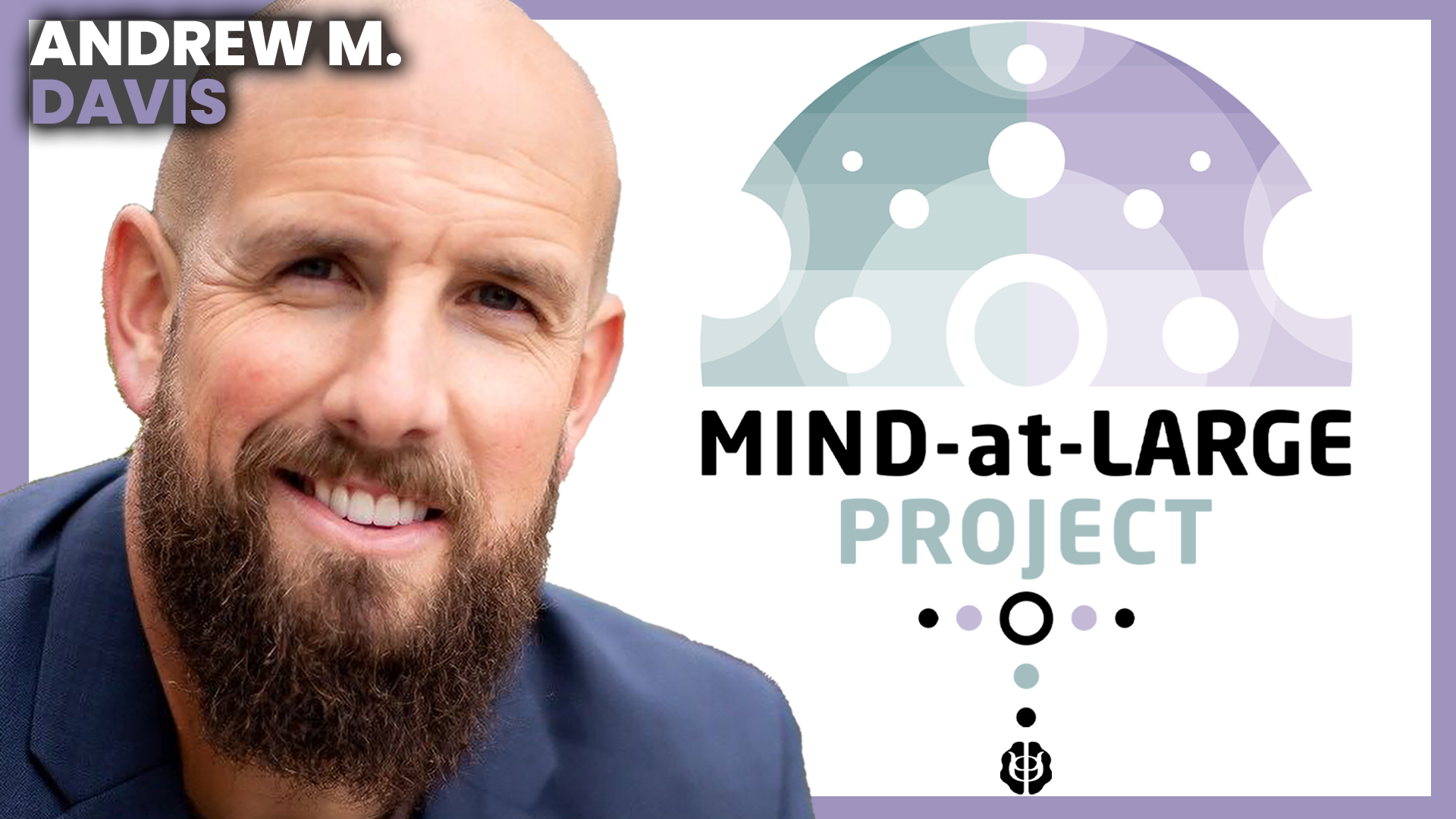Process Philosophy: A Living Metaphysics for a Changing World

Welcome to a deeper exploration of process philosophy, a perspective that emphasizes change, becoming, and interconnectedness as fundamental aspects of reality. In today's world, where rapid change and uncertainty are the norm, process philosophy offers a valuable framework for understanding and navigating the complexities of existence. In this blog post, we will delve into the core principles of this philosophical tradition, with a particular focus on the contributions of Alfred North Whitehead. We will explore how process philosophy provides a dynamic and evolving understanding of reality, emphasizing becoming over being, and its relevance in addressing contemporary challenges. If you found today's topic fascinating, please be sure to check out our recent episode, The Meaning Crisis, Process Cosmology & Whitehead's Universe | Mind-at-Large Project, where Dr. Andrew M. Davis joins Dr. Tevin Naidu for a deep exploration of meaning, process philosophy, and the evolving story of consciousness.
Introduction: Embracing a Dynamic World with Process Philosophy
We live in an era defined by unprecedented change. Technological advancements, environmental concerns, social and political upheavals – all contribute to a sense of instability and uncertainty. Traditional philosophical frameworks, often rooted in static and fixed notions of reality, can struggle to provide adequate guidance in such a dynamic world. This is where process philosophy comes in. It offers a refreshing alternative, viewing reality not as a collection of static entities, but as a continuous flow of events, processes, and relationships. This dynamic perspective can provide us with a more adaptable and resilient worldview, better suited to navigating the complexities of the 21st century.
The Meaning Crisis and the Need for a Living Metaphysics
Many contemporary thinkers have pointed to a pervasive "meaning crisis" in modern society. This crisis stems from a sense of alienation, disconnection, and a lack of purpose. Traditional sources of meaning, such as religion and community, have often lost their influence, leaving individuals adrift in a world that can feel meaningless and absurd. One contributing factor to this meaning crisis is the dominance of a reductionistic and materialistic worldview, which often fails to account for subjective experience, value, and purpose. Process philosophy offers a potential antidote to this crisis by providing a living metaphysics that acknowledges the inherent value and purpose within the universe. It emphasizes the interconnectedness of all things and the importance of individual experience in shaping reality.
What is Process Philosophy?
At its core, process philosophy is a philosophical tradition that emphasizes change, becoming, and process over static being. It rejects the idea that reality is composed of fixed substances or entities, and instead views it as a continuous flow of events and experiences. Key tenets of process philosophy include:
- Becoming over Being: The fundamental reality is not static existence, but dynamic becoming, a continuous process of change and transformation.
- Interconnectedness: All things are interconnected and interdependent. No entity exists in isolation.
- Experience: Experience is a fundamental aspect of reality, present in varying degrees throughout the universe.
- Creativity: The universe is inherently creative, constantly evolving and generating novelty.
- Value: Value is an inherent aspect of reality, guiding the processes of becoming and influencing the direction of change.
Process philosophy draws inspiration from a variety of sources, including the ancient Greek philosopher Heraclitus, who famously stated that "everything flows." However, the most significant modern proponent of process philosophy is Alfred North Whitehead.
Alfred North Whitehead's Vision: Becoming over Being
Alfred North Whitehead (1861-1947) was a British mathematician, logician, and philosopher who developed a comprehensive and influential system of process philosophy. His magnum opus, *Process and Reality* (1929), laid out a detailed cosmology that emphasized the dynamic and interconnected nature of reality. Whitehead argued that the fundamental units of reality are not material substances, but rather "actual occasions," which are momentary events of experience. These actual occasions are constantly coming into being, experiencing the world around them, and then perishing, only to be replaced by new actual occasions. This continuous process of becoming is the very essence of reality.
Key Concepts in Whitehead's Process Cosmology
Whitehead's process cosmology is built upon a number of key concepts that are essential for understanding his vision of reality:
- Actual Occasions: The fundamental units of reality, momentary events of experience that constitute the building blocks of existence.
- Prehension: The process by which an actual occasion takes account of and incorporates elements from its environment. This is a form of "feeling" or "experiencing" the world.
- Concrescence: The process by which an actual occasion integrates its prehensions into a unified and coherent experience.
- Eternal Objects: Abstract forms, qualities, and possibilities that can be actualized in concrete instances. These provide the potential for novelty and creativity.
- God: In Whitehead's cosmology, God is not a static, omnipotent being, but rather a dipolar entity consisting of a primordial nature and a consequent nature. The primordial nature contains all possibilities, while the consequent nature is influenced by the actual world and provides aim and direction to the creative advance.
These concepts work together to create a picture of reality as a dynamic, interconnected, and creative process.
Process Philosophy and Contemporary Challenges
Process philosophy offers a unique and valuable perspective on many of the contemporary challenges facing humanity. Its emphasis on interconnectedness can help us to understand the complex relationships between individuals, societies, and the environment. Its focus on becoming can provide us with a more adaptable and resilient approach to change and uncertainty. And its recognition of value can help us to identify and pursue meaningful goals and purposes. Some specific examples of how process philosophy can address contemporary challenges include:
- Environmental Crisis: Process philosophy's emphasis on interconnectedness highlights the importance of ecological responsibility and the need to protect the environment for future generations.
- Social and Political Polarization: Process philosophy's focus on understanding different perspectives and finding common ground can help to bridge divides and promote social cohesion.
- Technological Disruption: Process philosophy's emphasis on adaptability and creativity can help us to navigate the rapid changes brought about by technological advancements.
- Existential Concerns: Process philosophy's recognition of inherent value and purpose can provide a sense of meaning and direction in a world that can often feel meaningless.
Value, Purpose, and Teleology in a Process Universe
One of the most significant contributions of process philosophy is its reintroduction of value, purpose, and teleology into our understanding of the universe. In contrast to reductionistic and materialistic worldviews, which often deny the existence of objective value and purpose, process philosophy argues that value is an inherent aspect of reality, guiding the processes of becoming and influencing the direction of change. Whitehead believed that each actual occasion strives to maximize its own experience, seeking to realize the greatest possible value within its given context. This inherent drive towards value provides a sense of purpose and direction to the universe as a whole. Furthermore, process philosophy offers a nuanced understanding of teleology, or purpose-driven behavior. It rejects the idea of a fixed and predetermined teleology, instead emphasizing the emergent and evolving nature of purpose. The universe is not simply moving towards a pre-ordained goal, but rather is constantly creating new possibilities and new purposes through the dynamic interplay of its constituent elements.
Process Philosophy as Philosophical Praxis
Process philosophy is not merely an abstract intellectual exercise; it is a form of philosophical praxis, a way of engaging with the world that can lead to positive change. By embracing the principles of process philosophy, we can cultivate a more compassionate, empathetic, and creative approach to life. We can learn to appreciate the interconnectedness of all things, to embrace change and uncertainty, and to strive for the realization of value in our own lives and in the world around us. Furthermore, process philosophy can inform our actions in a variety of domains, including education, politics, and environmental activism. By grounding our actions in a process-oriented worldview, we can work towards creating a more just, sustainable, and meaningful future.
Re-Enchanting the World: Science, Spirituality, and Process Thought
Process philosophy offers a unique bridge between science and spirituality, providing a framework for re-enchanting the world in an age of disenchantment. It acknowledges the importance of scientific inquiry and empirical evidence, while also recognizing the validity of subjective experience and spiritual insight. Process cosmology aligns with many of the findings of modern science, such as the dynamic and evolving nature of the universe, the interconnectedness of all things, and the importance of emergence and complexity. At the same time, it provides a metaphysical framework that can accommodate spiritual experiences and values, such as love, beauty, and compassion. By integrating science and spirituality, process philosophy offers a holistic and meaningful worldview that can help us to reconnect with the world around us and to find purpose and meaning in our lives. This re-enchantment of the world is essential for addressing the meaning crisis and for creating a more sustainable and flourishing future.
The Role of the Philosopher in a World of Becoming
In a world of becoming, the role of the philosopher is not simply to analyze and critique existing ideas, but also to create new possibilities and new visions for the future. Process philosophy calls for a more active and engaged role for the philosopher, one that involves not only intellectual inquiry but also practical engagement with the world. The philosopher can serve as a guide and facilitator, helping individuals and communities to navigate the complexities of change and to develop meaningful goals and purposes. The philosopher can also play a critical role in fostering dialogue and understanding between different perspectives, helping to bridge divides and promote social cohesion. By embracing the principles of process philosophy, the philosopher can become a catalyst for positive change, contributing to the creation of a more just, sustainable, and meaningful world.
Conclusion: Process Philosophy as a Path to Meaning and Connection
Process philosophy offers a powerful and compelling vision of reality that is particularly relevant to the challenges and opportunities of the 21st century. By emphasizing becoming over being, interconnectedness, and the inherent value and purpose within the universe, it provides a framework for understanding and navigating the complexities of a rapidly changing world. It offers a path to meaning and connection in an age of alienation and disconnection, and it empowers us to create a more just, sustainable, and flourishing future. Whether you are grappling with existential questions, seeking a more meaningful understanding of the universe, or simply looking for a philosophical framework that can guide your actions in the world, process philosophy offers a valuable and insightful perspective. We encourage you to explore the ideas presented in this blog post further, and to consider how they might apply to your own life and work. And don't forget to listen to our latest podcast episode, The Meaning Crisis, Process Cosmology & Whitehead's Universe | Mind-at-Large Project, for an even deeper dive into the world of process philosophy and its implications for understanding the meaning crisis and the evolving nature of consciousness. The related show notes are as follows:
In this conversation, Dr Andrew M. Davis joins Dr Tevin Naidu for a deep exploration of meaning, process philosophy, and the evolving story of consciousness. They discuss the modern meaning crisis, Alfred North Whitehead’s process cosmology, philosophical praxis, and how value, agency, and mind might be fundamental features of an unfolding universe. From metaphysics to existential risk, and from science to spirituality - this conversation explores how philosophy can help us re-enchant our understanding of reality itself. Andrew M. Davis, PhD. is an American process philosopher, theologian, and scholar of the cosmos. He is research and academic director for the Center for Process Studies where he researches, writes, teaches, and organizes conferences on various aspects of process-relational thought. He is author, editor, and co-editor of nearly a dozen books including Mind, Value, and Cosmos: On the Relational Nature of Ultimacy (2020); Process Cosmology: New Integrations in Science and Philosophy (2022); Metaphysics of Exo-Life: Toward a Constructive Whiteheadian Cosmotheology (2023); and Whitehead's Universe: A Prismatic Introduction (forthcoming, 2026).








